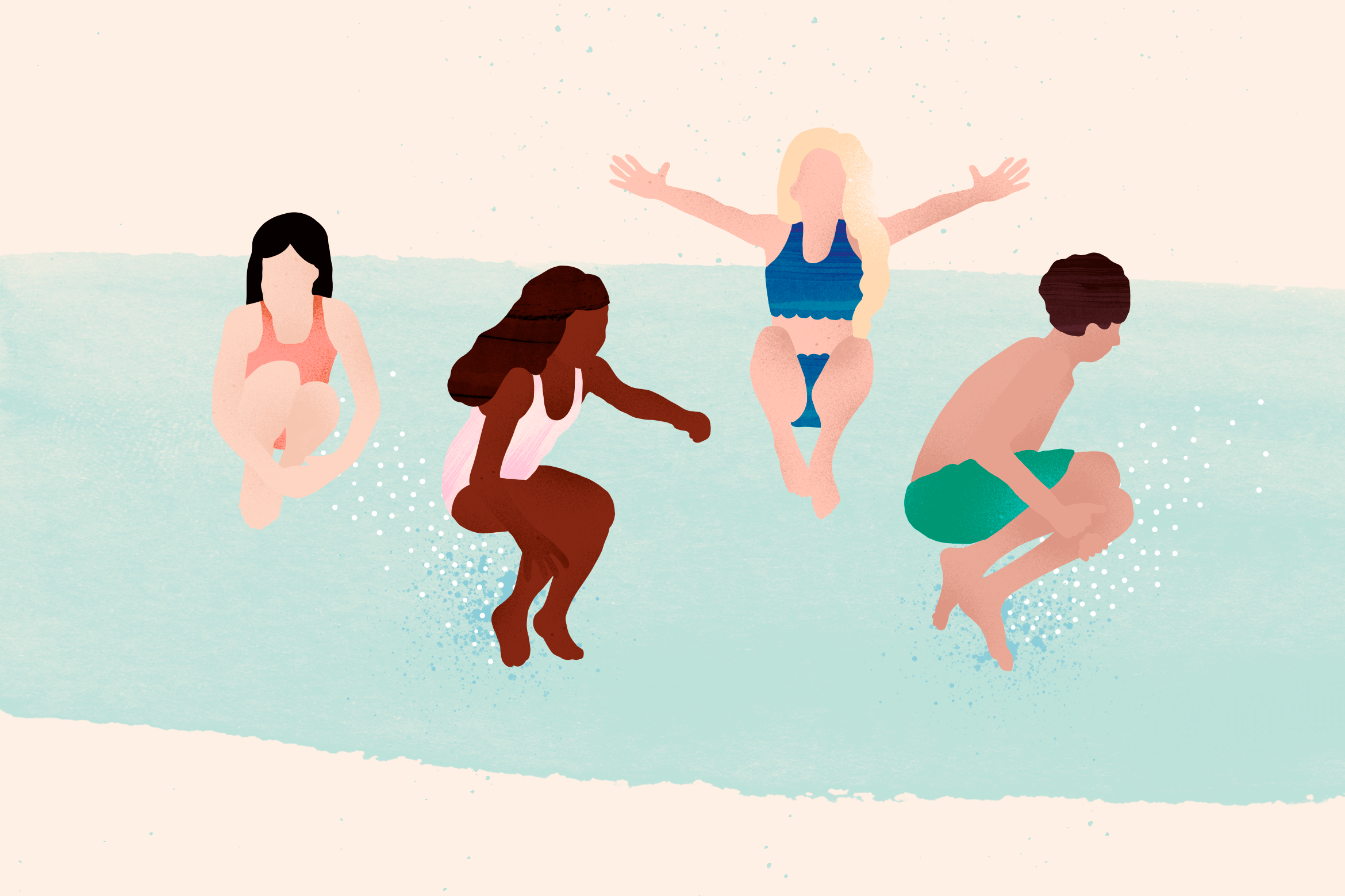Learning to swim in Australia is often thought of as a safety and survival skill, but we're very much of the philosophy that it's so much more than that. Here at In The Deep, swimming is thought of as a lifelong pursuit that has a positive impact on a child, physically, psychologically, emotionally, and behaviourally – a holistic opportunity for health and wellbeing that extends beyond the pool. Let's explore some of the ways in which swimming lessons can benefit kids.
The most obvious reason for swimming lessons: the physical benefits.
Swimming is a low-impact exercise that's gentle on the body. Providing a full-body work-out, it can improve cardiovascular health, increase muscle tone and strength, and enhance flexibility and mobility.
Having your child touch, kick, move their arms, splash and glide through water activates sensory systems that don't easily get activated on land, helping kids to boost their brain development, their body awareness, balance, co-ordination, and attention.
And if that's not enough, swimming can help your brain grow, by creating a tactile environment that facilitates communication, feedback and modulation from one side of the brain to the other.
Swimming lessons can help alleviate asthma.
Swimming is also a great form of exercise for children with asthma as it's a low-impact activity that doesn't put a lot of strain on the lungs. The humid environment in the pool is thought to also help to reduce symptoms, as it keeps the airways moist and relaxed. Additionally, swimming can improve lung capacity and fitness, which can ultimately reduce the severity of asthma.
Chlorinated pools can be problematic though – some studies suggest a link between asthma symptoms and the by-products of chlorine pools. We've made the switch from a chlorinated pool at In The Deep to an AOP water purification system, which combines the power of UV and ozone to create the ultimate soft, clean, hygienic and odour free water. Our pool now uses the same technology as bottled water, removing all toxic chlorine by-products from the environment. We can breathe easier knowing that kids aren't being exposed to harmful chemicals.
The benefits to our mind, feelings and relationships – with ourselves and others.
Swimming lessons can have a positive impact on a child's mental health. Have you ever noticed how calm you feel in and around water? When you've learnt to relax in the water, swimming becomes rhythmic and soothing. Activating the part of our body's nervous system called the parasympathetic state, known as rest and digest, it tells your body it's safe to relax, promoting relaxation and a sense of well-being. The more our bodies are in this state, the more it can help to reduce the physical and emotional symptoms of stress and anxiety.
This explains our collective love for beachside holidays!
Swimming lessons can help kids learn mindfulness.
Mindfulness is almost like an extra skill we unknowingly develop while learning to become aware of and control the timing of our breathing. In swimming, we need to focus on breath control and maintaining a steady rhythm to swim efficiently. As we follow the black line, we're present and paying attention to how our strokes feel, the rhythm of our kicking and breathing. This helps kids develop awareness, and a greater sense of calm and focus.
Swimming lessons can help children develop positive relationships and social skills, too.
Lessons provide a fun and relaxed atmosphere that encourages kids to interact with each other. They learn how to work as a team, take turns, and share in their experience. Water provides a unique environment for children to feel free to express themselves. Being in and around water can bring a feeling of joy and fun that's hard to replicate in other settings. Read more about why we place so much emphasis on fun in our lessons; a core value we take oh-so-seriously!
Swimming requires discipline, perseverance, and commitment.
Children learn to set goals, work hard, and strive to achieve them. These skills can translate into other areas of a child's life, such as academics, sports, and personal relationships.
Swimming lessons can also help to build independence, confidence, and self-esteem in children.
When we celebrate the achievements along the way in our swimming journey, we're also boosting a child's self-esteem and confidence, helping them find their independence and setting their future selves up for greater success. They learn to trust themselves and their abilities.
Swimming provides kids with a unique opportunity to develop physical, psychological, emotional, and behavioural skills and attributes that can benefit them for a lifetime, far beyond water safety and survival skills. So, what are you waiting for? Make a splash, sea you in the water?
x Sasha



No comments.